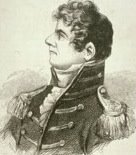My time in York
Bishop Taylor has served various parishes around the Church as deacon, assistant, rector, and bishop. He was born and raised in Jamaica, where he was greatly influenced by his paternal grandmother, Adina Taylor, and his headmaster, the Right Reverend Percival William Gibson, who later became Lord Bishop of Jamaica and ordained him to the Diaconate and to the Priesthood.
Bishop Taylor has always had a keen interest in evangelism. At his first posting, at St. Mary's in Kingston, Jamaica,the Parish grew from a tiny mission of about 50 souls to a large and flourishing Parish of over 2,000.
 I last took a sabbatical 19 years ago. Then the Bishop of the Virgin Islands, I spent a month at home reading and reflecting on the direction of my ministry. My wife was struggling with cancer at the time, and I needed to be close to her. Four years later, after my wife’s death, I was again planning a sabbatical when I was called to be the Vicar Bishop for New York City. It was suggested I defer sabbatical for a year; 13 years later, my time came. It was well worth the wait.
I last took a sabbatical 19 years ago. Then the Bishop of the Virgin Islands, I spent a month at home reading and reflecting on the direction of my ministry. My wife was struggling with cancer at the time, and I needed to be close to her. Four years later, after my wife’s death, I was again planning a sabbatical when I was called to be the Vicar Bishop for New York City. It was suggested I defer sabbatical for a year; 13 years later, my time came. It was well worth the wait.I spent June and July in “Old” York with the permission of the new Archbishop of York, His Grace, the Most Rev. and Rt. Hon. John M. Sentamu, an immigrant from Uganda. The Dean of York, the Very Rev. Keith Jones, and his wife, Viola, provided me housing in the deanery. The archbishop’s chaplain and the clergy of York Minster were generous with their time and advice.
The bishops and deans of the Northern Province opened doors for me and provided otherwise impossible insights. In two months, I also visited the dioceses of Blackburn, Bradford, Liverpool, Carlisle and Manchester.
“Evangelism in the Anglican Tradition,” is a passion of my ministry. For me, it involves proclaiming the Gospel of Jesus Christ; leading people to accept the claims of the Gospel; and leading such persons to use the gifts given them by the Hold Spirit to become full, active participants in the Christian community.
My zeal for evangelism has grown during my tenure in New York; its importance sharpened by the challenge of reaching immigrants from all over world. I focused my sabbatical on gaining a better understanding of this challenge. The way evangelism plays out may vary from one location to another, but each community of faith offers a unique perspective.
Many of the dioceses of the Northern Province are working hard to teach the Gospel in constantly changing communities, and in places where immigrants are unfamiliar with the Gospel of Jesus Christ. York, where the Gospel has been proclaimed faithfully for more than a thousand years to a wide range of people, presented a good place for me to look, listen and learn. In many ways the challenges we face in New York are very much the same as they face in York; therefore we have much to share.
(I was fortunate to be in York when the General Synod of the Church of England met. As a visitor, seated in the gallery, I was able to see firsthand how the Church of England conducts business.)
How will this exposure enrich my ministry in New York? We face similar challenges.
New York and “Old” York are challenged to present the Gospel in a world that no longer places God at the center of its life; where non-Christian faiths compete with Christianity for people’s minds and souls, especially the young. Aware of this challenge, the Church of England implements a variety of programs–social service, education and advocacy–to expose people to Jesus’ love.
The Diocese of Bradford, which straddles a large Islamic community, presents a particular challenge. Here, interfaith dialogue has advanced an understanding of the fundamental tenets of Christian faith on many levels. I attended a Christian/Islamic relations seminar that opened my mind to important aspects of Islamic faith and culture.
I also made discoveries in mission and ministry. In rural areas, much the same as in New York, the Province of York cannot sustain one priest per parish. I met a priest who oversaw 11 small, rural congregations, but who was happy and fulfilled in his ministry. In many cases the yoking of congregations did not destroy the identity or the structure of the individual congregation. And the use lay ministers, non-stipendiary and retired clergy provided an added resource, further enriching the blend. In one instance, several small congregations shared a youth leader to provide otherwise absent Christian education and catechetical instruction.
Maintaining shared ministry necessitates a centralized structure, but I didn’t get the sense that it stifled or curtailed local, spontaneous initiative; rather it sparked conversation and removed the sense of isolation small congregations often feel. A central structure allows small congregations to focus on the mission of Jesus Christ, whereas strain diverts their energy from mission.
Lastly, I was deeply touched by the warm and generous affection the Church of England holds for The Episcopal Church, USA. Everywhere I went clergy and lay people went out of their way to show me that they love and cherish the TEC as part of the Anglican Communion.







